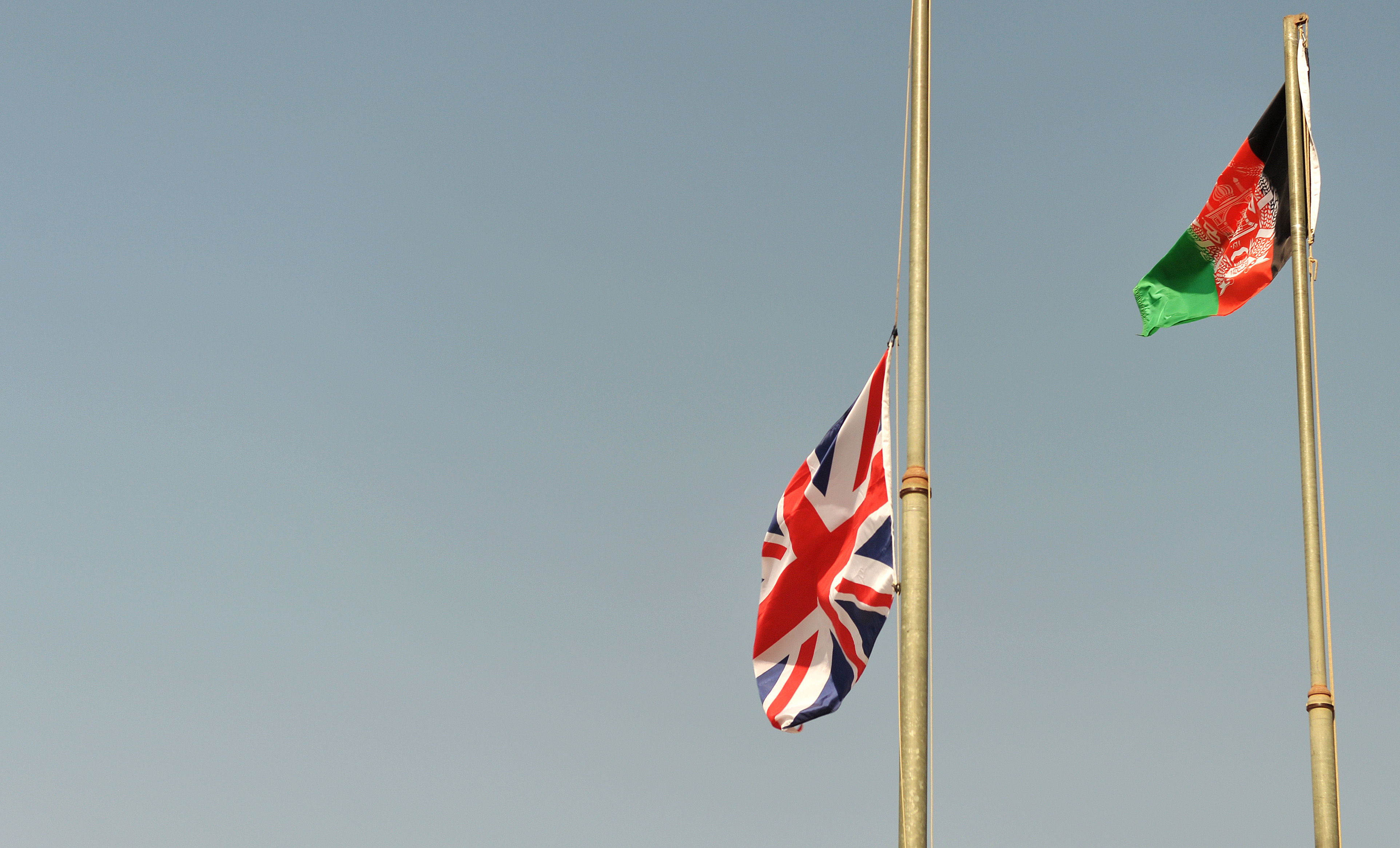
UK Government Rejects Claims It Is 'Not Supporting' Afghan Staff

The Government has rejected claims it is "not supporting" former or current Afghan staff who worked alongside British troops in the country.
It comes after dozens of former senior military figures penned an open letter calling for more Afghan staff to be allowed to resettle in the UK.
The letter said the Afghan Relocations and Assistance Policy (ARAP), introduced earlier this year, was "not being conducted with the necessary spirit of generosity required to protect" former Afghan staff.
"It is clear there is insufficient capacity for ARAP to cope with the scale and pace required," the letter stated.
"If any of our former interpreters are murdered by the Taliban in the wake of our withdrawal, the dishonour would lay squarely at our nation's feet."
It also said the policy "discriminates against" 35% of Afghan staff dismissed "without any due process or ability to appeal their dismissal".
The Government's response, signed by both the Home Secretary Priti Patel and Defence Secretary Ben Wallace, said there had been "considerable misreporting of the scheme" feeding the impression "the Government is not supporting our former and current Afghan staff".
"This could not be further from the truth and since the US announced its withdrawal we have been at the forefront of nations relocating people."
The response also said relocation will now be offered to 264 Afghan staff dismissed for "relatively minor administrative offences".
Watch: Urgent calls to help relocate Afghan interpreters whose lives may be at risk.
"Since May we have offered relocation to the 121 people in this category who have so far applied," the Government said.
The Government added that staff dismissed for "serious security concerns at the time, often due to links with the Taliban", would continue to be excluded.
It also said those dismissed for offences constituting a crime in the UK, such as "sexual harassment or sexual assault, violent assault on British troops or fellow [Afghan] staff, theft, and drug abuse", would continue to be excluded.
The open letter also outlined grave concern for Afghan staff who did not qualify for support as "they are not considered to have been in an 'exposed role'".
"The Taliban make no such distinction about employment of local staff with coalition forces and have already murdered a number of those in these categories," the letter said.
"We ask that all locally employed staff be made eligible for relocation on a genuine case-by-case basis rather than the broad rejections currently being issued by ARAP."
On 2 August, Mr Wallace posted a series of tweets in which he pledged to "personally review contentious claims".
He also said "decisions are based on the threat to the civilians' life, their eligibility and the security of UK citizens, identities and eligibility".
Watch: Former Afghan interpreter on new life in UK – 'I couldn't stop crying'.
However, the Government's response said it does not "support the view that all Afghans who performed roles in support of international forces in Afghanistan are at risk of reprisals from the Taliban".
The response added that the Ministry of Defence (MOD) employed "several thousand local staff", with "the majority" taking place "behind the wire in military bases".
"Recent and regular intelligence assessments on this subject do not indicate intent on the part of the Taliban to conduct reprisals against Afghans who conducted low-level support roles for international forces," the Government said.
But the Government did say ARAP allowed "for priority relocation for anyone assessed to be at high risk of harm as a result of their work" alongside the UK military.
"So no former [Afghan staff] are excluded by default," it added.
In May, Defence Secretary Ben Wallace announced the ARAP programme was being accelerated to allow hundreds more Afghans who worked alongside British personnel to settle in the UK.
The Government also said, "unlike some other counties", ARAP would "remain open indefinitely".
Cover image: The British flag is lowered during a ceremony to mark the end of British combat operations in Afghanistan and the drawdown from Camp Bastion (Picture: MOD).









